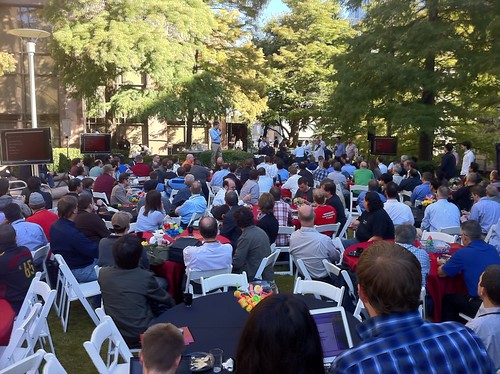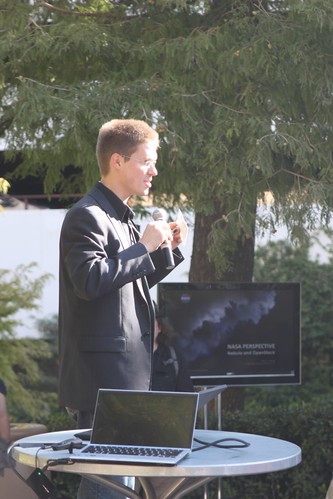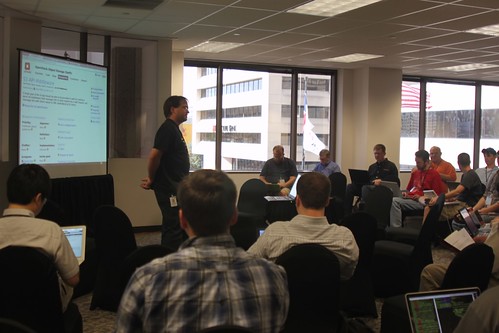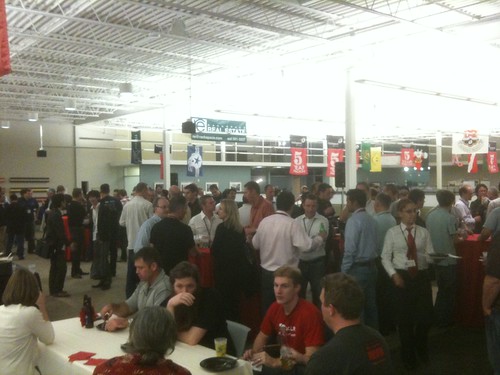
Mayor Julian Castro of San Antonio visits the OpenStack Design Summit Lounge
Plenty of activity today at the Design Summit as the Document Sprint got underway as well as completion of the final blueprint discussions in the technical track. There were also plenty of new blog postings on the summit to share:
Rob Hirschfeld – http://robhirschfeld.com/2010/11/11/openstack-day-2/
Between partnering meetings, I bounced through a biz and tech sessions during Day 2 of the OpenStack conference (day 1 notes). After my wordy impression summary, I’m including some succinct impressions, pictures, and copies of presentations by my Dell team-mate Greg Althaus.
Programmer Thoughts – http://programmerthoughts.com/programming/features-i-would-like-to-see-in-swift/
Swift is a great way to store large amounts of data cheaply. This week I’m at the OpenStack design summit, and I’ve been thinking of features I would like to see added to swift.
JB George – http://jbgeorge.net/
Another great day at the OpenStack Design Summit in beautiful San Antonio, Texas.
Here are some of the highlights:
* A lot of great business and technical discussions including details around the upcoming Bexar release. Important discussions around brand, trademarking, governance, and use cases.
DataCave – http://www.thedatacave.com/cloud/openstack-a-game-changer-for-the-cloud
When the OpenStack framework was announced a few months ago, a lot of opinion was spread regarding its mission and viability. Until that point, cloud software had, for the most part, been proprietary closed-source options available only as a service. While open-source options, like Eucalyptus, were already available to provide software to build your own cloud – the OpenStack project was more of a holistic project – initiated by Rackspace – as a community project to rally around build-your-own-cloud.
Zenoss Blog – http://community.zenoss.org/blogs/zenossblog/2010/11/11/building-the-open-cloud-with-openstack
While at the Openstack design summit this week, I had a chance to sit down with Stephen Spector, Openstack Community manager. Stephen was happy to record a quick video with me to introduce the summit and Openstack in general.


















